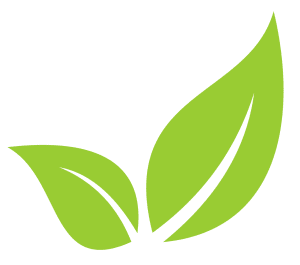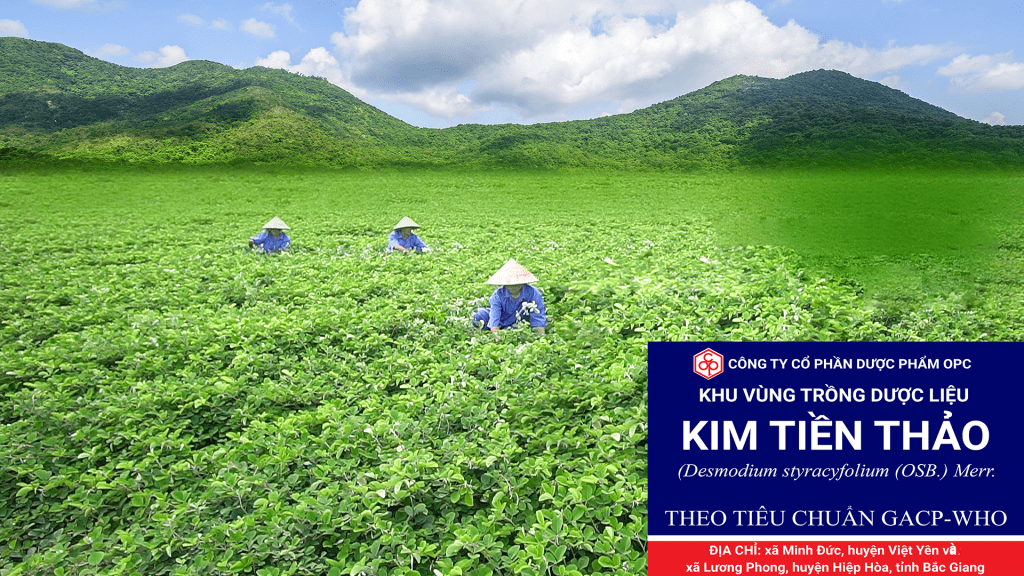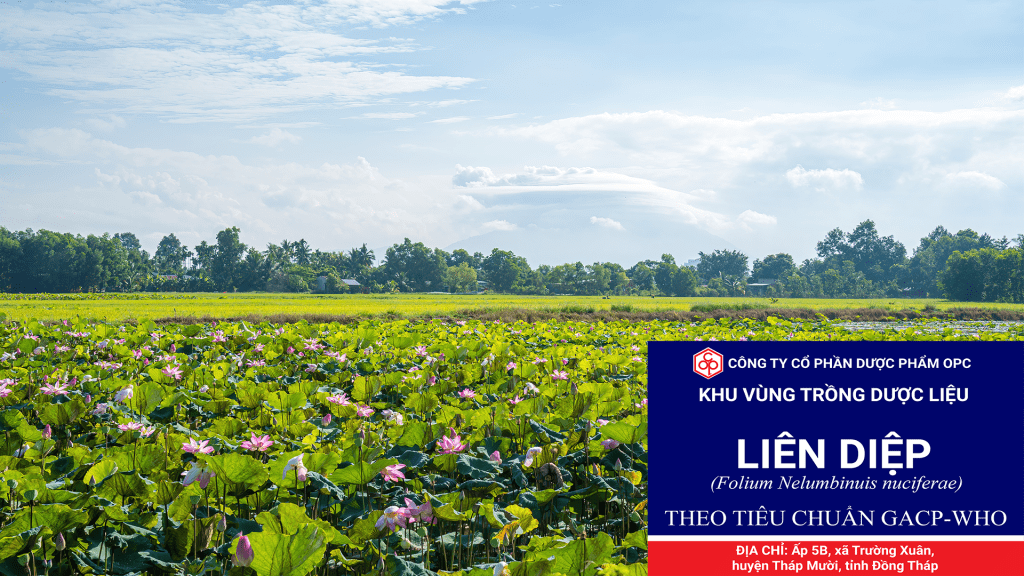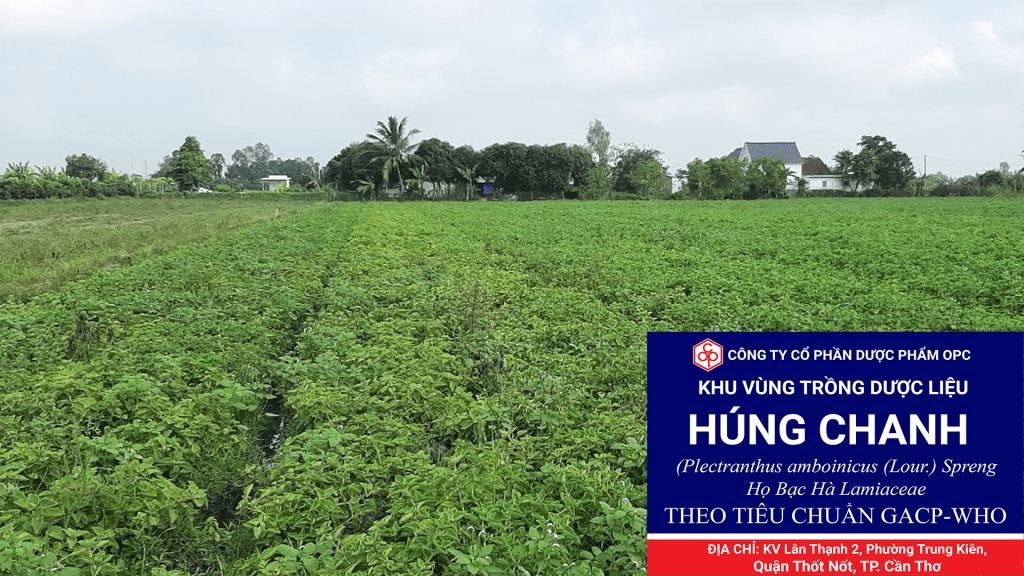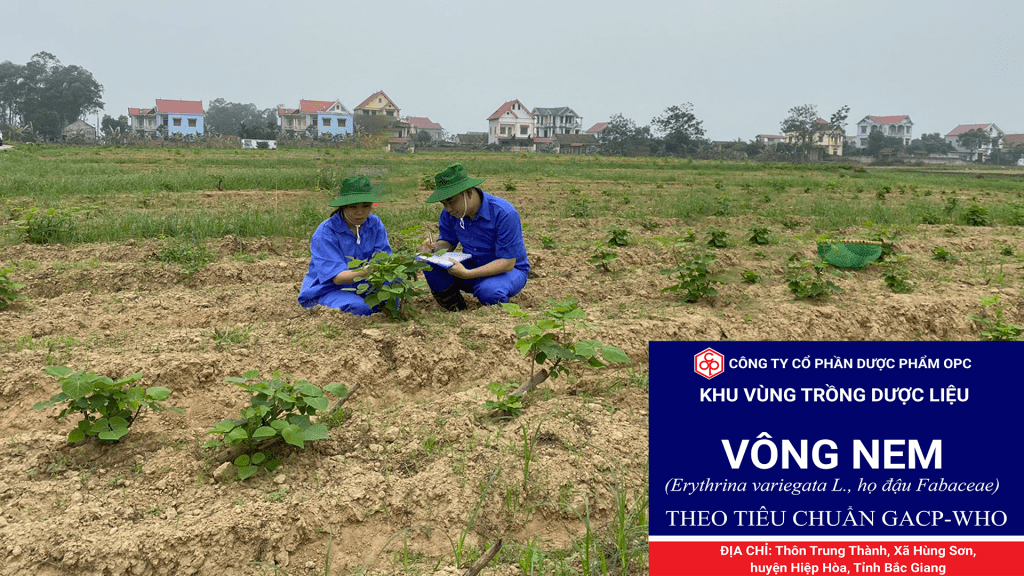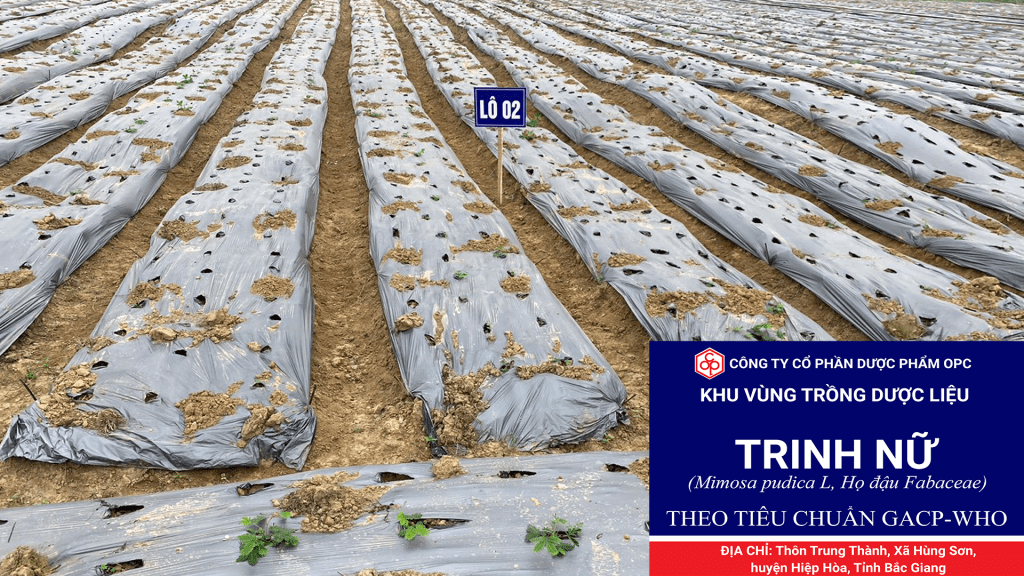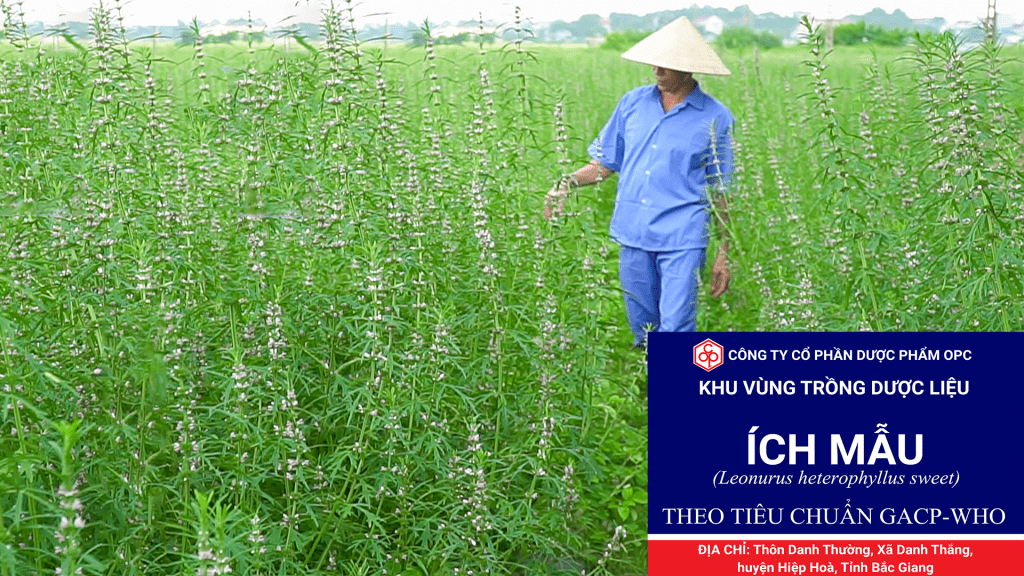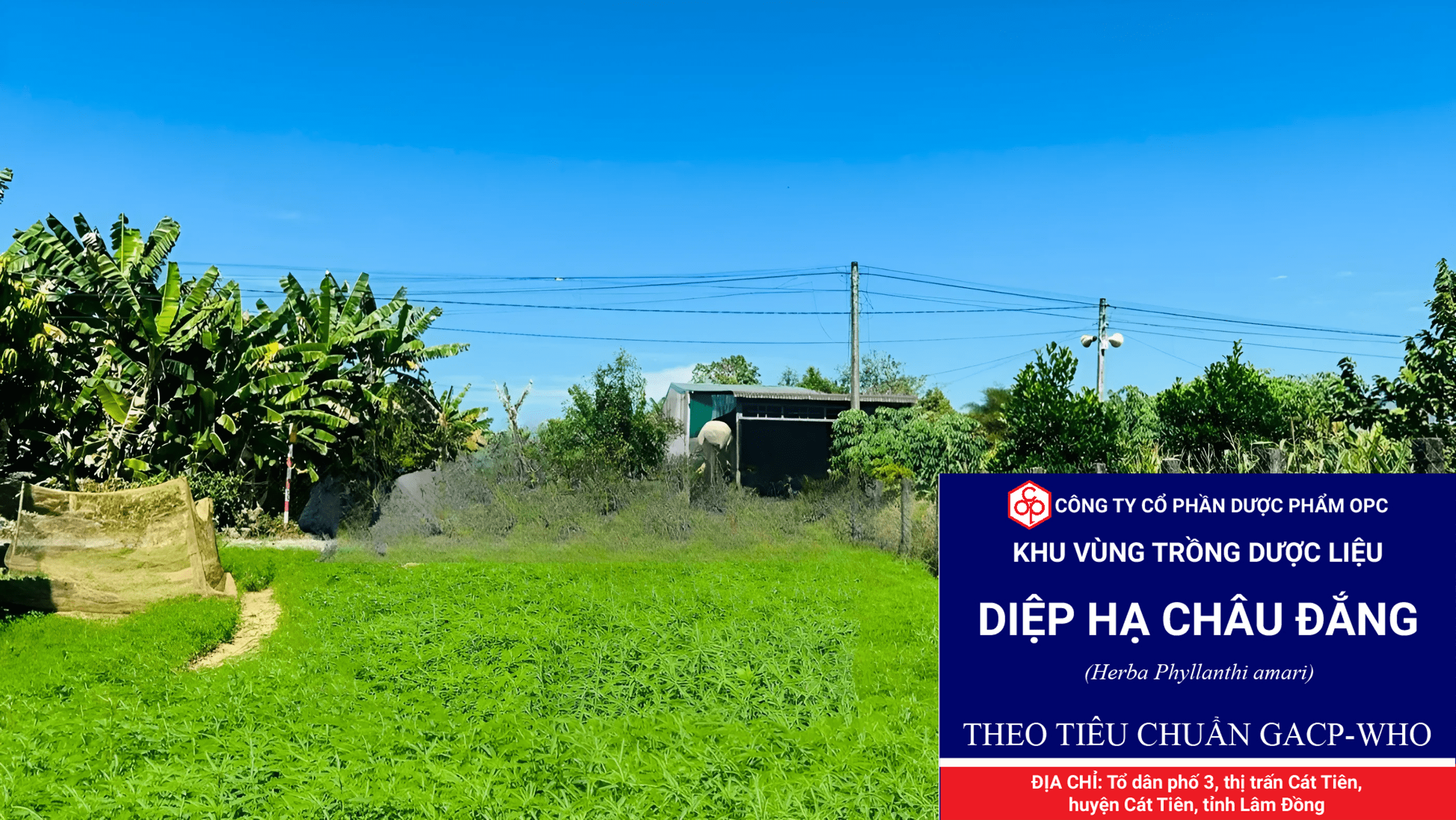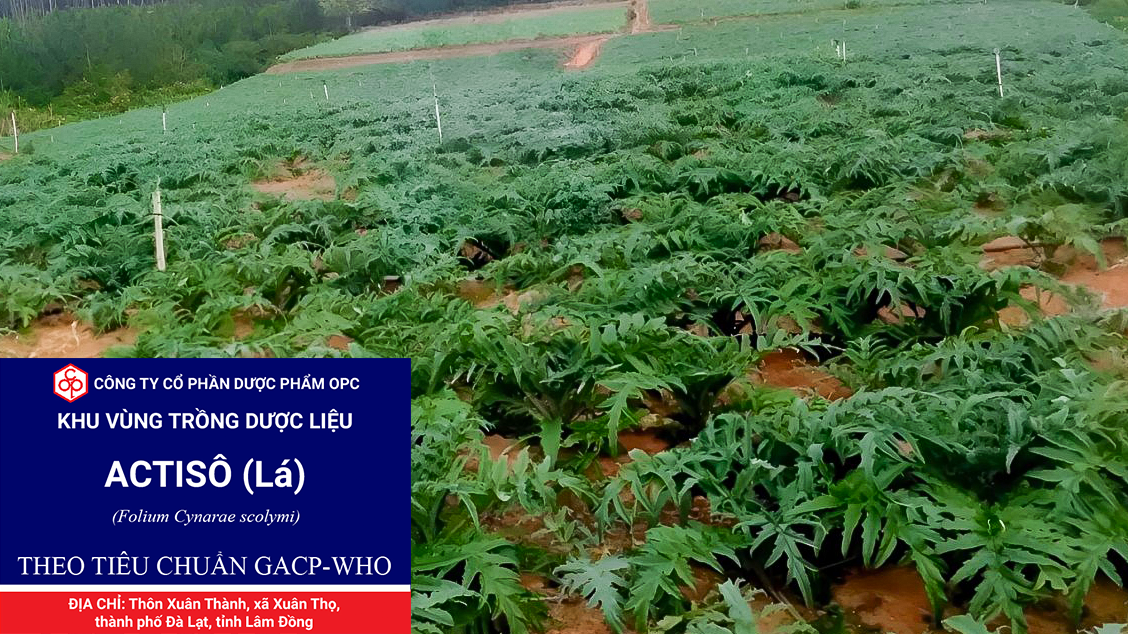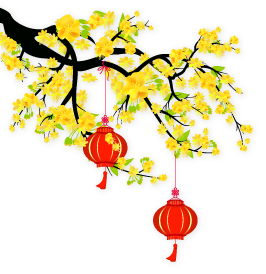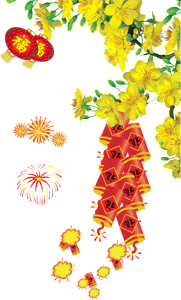The significance of investing in the development of herbal cultivation areas
The development of herbal cultivation is a long-term and sustainable business strategy of OPC Pharmaceutical Joint Stock Company. This not only helps OPC Pharmaceutical to have control over the clean raw material input, but also has a great significance in solving the problem of the demand for herbal materials for the production of Vietnamese healthcare system. At the same time, through the cooperation in the development of herbal cultivation with localities, especially in remote provinces, has contributed to creating conditions for the local economy to develop, creating jobs for people, exploiting and preserving the precious indigenous medicinal resources of Vietnam. All of these have profound implications for social security, environmental protection, and promoting humanity!
Herbal cultivation areas that meet GACP-WHO standards
GACP-WHO is the principles and standards of Good Agricultural and Collection Practices for Medicinal Plants recommended by the World Health Organization (WHO). GACP-WHO is an inevitable trend, playing a very important role in creating a clean source of medicinal materials that meet the standards and ensure quality.
Herbal cultivation areas that meet GACP-WHO standards must meet many strict criteria for genetics (genes of medicinal plants), humans (cultivation techniques, harvesting…), and environment (microbiological conditions, temperature, diseases…) at localities with suitable soil for each type of medicinal plant on the S-shaped land.
In order to standardize and bring high-quality products that are truly safe and effective to consumers, OPC Pharmaceutical Joint Stock Company was the first to build herbal cultivation areas that meet GACP-WHO standards since 2006.
The significance of investing in the development of herbal cultivation areas
The development of herbal cultivation is a long-term and sustainable business strategy of OPC Pharmaceutical Joint Stock Company. This not only helps OPC Pharmaceutical to have control over the clean raw material input, but also has a great significance in solving the problem of the demand for herbal materials for the production of Vietnamese healthcare system. At the same time, through the cooperation in the development of herbal cultivation with localities, especially in remote provinces, has contributed to creating conditions for the local economy to develop, creating jobs for people, exploiting and preserving the precious indigenous medicinal resources of Vietnam. All of these have profound implications for social security, environmental protection, and promoting humanity!
Herbal cultivation areas that meet GACP-WHO standards
GACP-WHO is the principles and standards of Good Agricultural and Collection Practices for Medicinal Plants recommended by the World Health Organization (WHO). GACP-WHO is an inevitable trend, playing a very important role in creating a clean source of medicinal materials that meet the standards and ensure quality.
Herbal cultivation areas that meet GACP-WHO standards must meet many strict criteria for genetics (genes of medicinal plants), humans (cultivation techniques, harvesting…), and environment (microbiological conditions, temperature, diseases…) at localities with suitable soil for each type of medicinal plant on the S-shaped land.
In order to standardize and bring high-quality products that are truly safe and effective to consumers, OPC Pharmaceutical Joint Stock Company was the first to build herbal cultivation areas that meet GACP-WHO standards since 2006.
